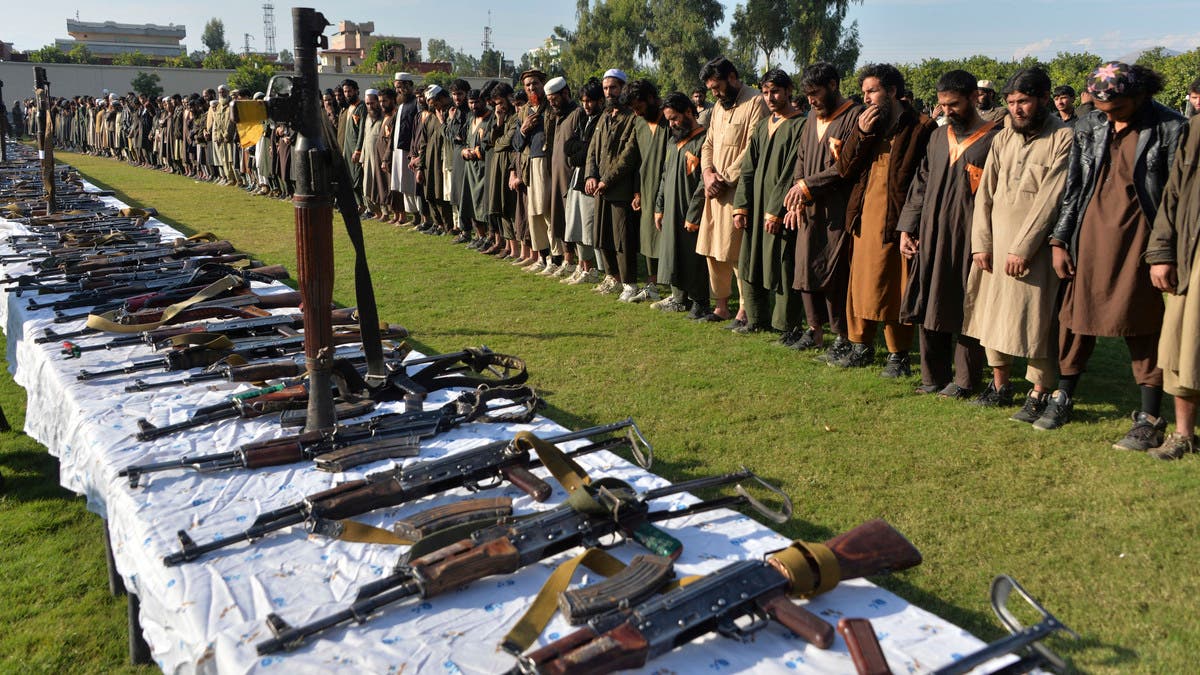Al-Qaida’s past ties to the recently empowered Taliban have the potential of making Afghanistan a safe haven for extremists, and “terrorist groups enjoy greater freedom there than at any time in recent history,” UN experts said in a report circulated Monday.
For the latest headlines, follow our Google News channel online or via the app.
In the wide-ranging report, the experts also said extremists linked to both al-Qaida and ISIS are successfully advancing in Africa, especially in the turbulent Sahel. And they said ISIS continues to operate “as an entrenched rural insurgency” in Iraq and Syria, where its so-called caliphate ruled a significant swathe of the two countries from 2014-2017 when it was defeated by Iraqi forces and a US-led coalition.
In what it called “a bright spot” in Southeast Asia, the panel of experts said both Indonesia and the Philippines reported “significant gains” in disrupting ISIS and al-Qaida-affiliated “terrorism” and “some optimism” that their operational capability “may be significantly degraded.”
The report to the UN Security Council by the panel of experts monitoring sanctions against al-Qaida and ISIS, also known as IS and ISIL, called the Taliban’s return to power on August 15 amid the chaotic final withdrawal of US and NATO troops after 20 years the most significant event of the last six months of 2021.
The Taliban first ruled Afghanistan from 1996-2001 and were ousted for harboring al-Qaida and Osama bin Laden for masterminding the 9/11 terrorist attacks in the US in 2001. In a February 2020 deal that spelled out the terms of the US troop withdrawal, the Taliban had promised to fight terrorism and deny terrorist groups a safe haven in Afghanistan.
But the panel of experts said “there are no recent signs that the Taliban has taken steps to limit the activities of foreign terrorist fighters in the country.” On the contrary, it said, terrorist groups are enjoying “greater freedom,” though member states “have not reported significant new movements of foreign terrorist fighters to Afghanistan.”
The experts noted that al-Qaida released a statement congratulating the Taliban on its victory on August 31, but since then it has maintained “a strategic silence, likely an effort not to compromise Taliban efforts to gain international recognition and legitimacy.”
“Al-Qaida is also continuing to recover from a series of leadership losses and is assessed to lack the capability to conduct high-profile attacks overseas, which remains its long-term goal,” the panel said.
Al-Qaida’s leader, Ayman al-Zawahri was reported alive in January 2021, it said, “but member states continue to believe that he is in poor health.”
The experts noted that Amin Muhammad ul-Haq Saam Khan, who coordinated security for bin Laden, returned to his home in Afghanistan in late August. And they said an unnamed country reported that bin Laden’s son, Abdallah, visited in October for talks with the Taliban.
As for ISIS, the panel said while it controls limited territory in Afghanistan, “it has demonstrated a continuing ability to mount sophisticated attacks, adding to the complexity of the security situation in Afghanistan.” As an example, it cited the complex attack at Kabul airport on August 27 in which more than 180 people were killed.
Member states said ISIS’ strength in Afghanistan has risen from an estimated 2,200 to near 4,000 following the release of several thousand prisoners, according to the panel, which said one country estimated that half were foreign fighters.
The experts said the Taliban views ISIS “as its primary kinetic threat,” that seeks to be the “chief rejectionist force in Afghanistan with a wider regional agenda threatening neighboring Central and South Asian countries.”
The report does not cover last week’s killing of the leader of ISIS, known as Abu Ibrahim al-Hashimi al-Qurayshi, in a US raid in northwest Syria.
But the experts said that like al-Qaida, ISIS’ leadership “faces difficulties.” They pointed to al-Qurayshi’s failure to show himself in the last half of 2021 and Iraq’s announcement on October 11 that it captured Sami Jasim Muhammad al-Jaburi, alias Hajji Hamid, who was in charge of ISIS finances and believed to be the most senior deputy and a possible successor to the ISIS leader.
In its former strongholds in Iraq and Syria, the panel said ISIS continues to withstand “sustained counter-terror pressure from forces in the region.” It is estimated to retain between 6,000 and 10,000 fighters and is forming cells and training operatives to launch attacks, the experts said.
Both ISIS and al-Qaida continue to make advances in Africa, especially in the Sahel, where the panel said they have “successfully exploited local grievances and weak governance to command growing numbers of followers and resources, notwithstanding internal divisions and rivalries.”
UN member nations remain “deeply concerned” at the success of ISIS and al-Qaida affiliates in Africa during the last half of 2021, the experts said.
Read more:
Pushed into the shadows, ISIS still has global reach
US offers millions of dollars for information on ISIS-K leader, Kabul airport bombing
US says worried about increase in attacks by ISIS-K in Afghanistan

 World3 years ago
World3 years ago
 World3 years ago
World3 years ago
 Business11 months ago
Business11 months ago
 Entertainment7 years ago
Entertainment7 years ago
 World7 years ago
World7 years ago
 Entertainment7 years ago
Entertainment7 years ago






